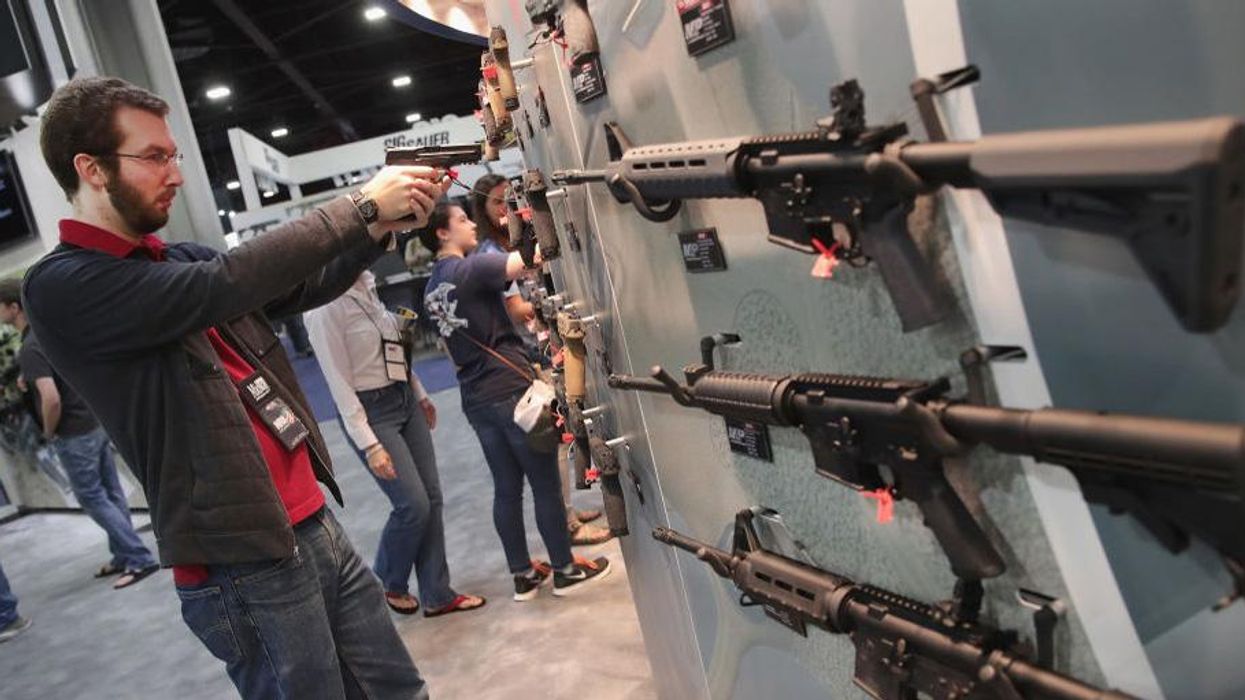News
Greg Evans
Feb 16, 2018

Picture:
Scott Olson/Getty Images
There have been 30 mass shootings in the United States this year alone, but Wednesday's massacre at a high school in Florida stands as the ninth worst in modern history.
19-year-old Nikolas Cruz killed 17 people at Marjory Stoneman Douglas High School and injured 15 more with a semi-automatic assault rifle.
In the wake of every major shooting, thousands of people call for an introduction on restraints for the availability of guns in America, but it is seldom that anything ever happens.
The blame often falls on the National Rifle Association and the strong influence that they hold in American politics.
In recent years, the NRA has become an increasingly demonized organisation, an identity which they haven't exactly helped themselves with.
Following recent mass shootings, they often go quiet on social media and wait for the discussions to die down before reemerging.
This has been further perpetuated by a series of highly confrontational videos fronted by conservative radio host Dana Loesch.
But this type of propaganda and aggressively protective stance on guns hasn't always been the policy of the NRA.
In the 1930s, when the ruthless gangster and bank robber John Dillinger was exchanging gunfire with his enemies on the streets, the leader of NRA spoke out against the senseless violence.
During Congressional hearings in 1934, in regards to the proposed restrictions on gun sales, Karl T Frederick, the then-President of the National Rifle Association, said under testimony:
I have never believed in the general practice of carrying weapons.
I do not believe in the general promiscuous toting of guns.
I think it should be sharply restricted and only under licenses.
In the 2011 book Gunfight: The Battle Over the Right to Bear Arms in America, author Adam Winkler details just how complex a character Frederick was.
As a three-time Olympic gold medallist in shooting, Frederick was a keen marksman and believed in shooting as a pass time and a sport.
However, despite appearing in Congress to propose restrictions against the criminal use of guns, he still wanted to protect the rights of a regular citizen and their right to own a firearm.
He is quoted as saying:
I am just as much against the gangster as any man [but] I do not believe we should burn down the barn in order to destroy the rats.
I think we should be careful in considering the actual operation of regulatory measures to make sure that they do not hamstring the law-abiding citizen in his opposition to the crook.
This may sound like the stance that advocates adopt today, in that any person with a gun would be able to defend themselves and their family against other shooters.
Yet, in contrast, he didn't believe that this right should translate to someone being able to carry a gun as part of their everyday life.
He added:
I have never believed in the general practice of carrying weapons
I seldom carry one.
Furthermore, Frederick felt that the topic of self-defence and guns should come through education and "intelligent legislative action".
In today's climate, Frederick would be seen as an interesting character in the ongoing debate around guns in America, and Winkler feels that his words would have resonated with the public.
In an interview with The Washington Post he said:
I think Frederick represented what the mainstream views of Americans are on guns today.
You have a right to bear arms, but there is also a place for reasonable regulations.
That’s where most Americans are on this issue. But that’s not where the NRA is anymore.
Frederick was by no means against guns of all kinds and was only lobbying for imposing licenses on machine guns and sawn-off shotguns, but not pistols.
As a result of the National Firearms Act of 1934, heavy restrictions on larger guns were introduced, while there were fewer restrictions on handguns.
Frederick's words do not correlate with the strong rhetoric of the NRA today and there are little references to him on their official website.
At time of writing, the NRA is yet to comment on the Marjory Stoneman Douglas High School shooting.
Top 100
The Conversation (0)
x












